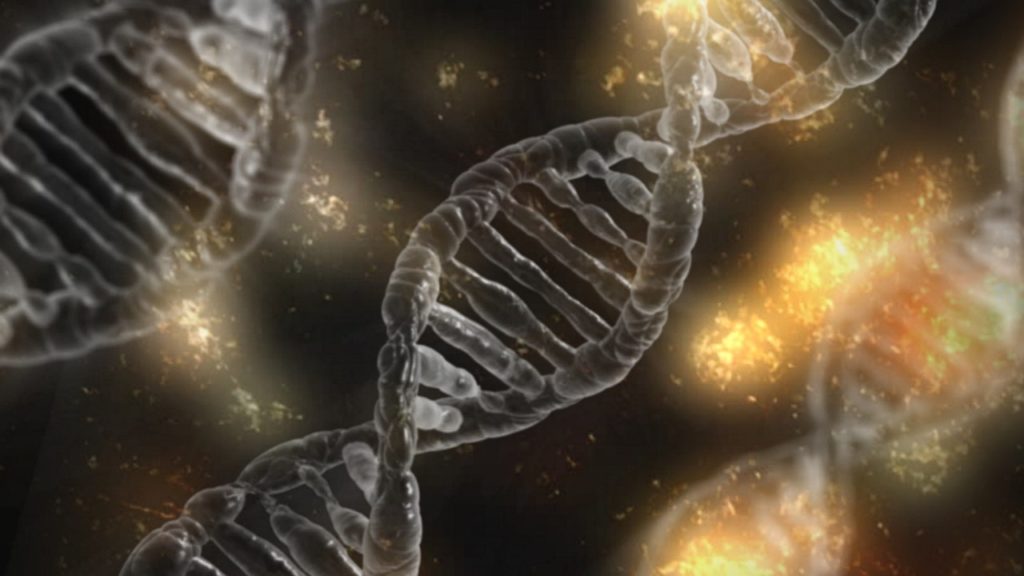- Calls to this hotline are currently being directed to Within Health, Fay or Eating Disorder Solutions
- Representatives are standing by 24/7 to help answer your questions
- All calls are confidential and HIPAA compliant
- There is no obligation or cost to call
- Eating Disorder Hope does not receive any commissions or fees dependent upon which provider you select
- Additional treatment providers are located on our directory or samhsa.gov
Genetics and Anorexia Nervosa – Anomalies on Chromosome 12

Sponsored By: The Refuge – A Healing Place
Eating disorders are biopsychosocial disorders, meaning, the behaviors are impacted by biology, psychology, and sociology. Social aspects of eating disorders are often discussed. However, the biological aspect is one with which people are less familiar. Even so, the aspects of genetics and anorexia nervosa (AN) are essential to better understanding the disease.
The Genetics and Anorexia Numbers
The genetics of Anorexia have been studied from many angles such as family and twin studies, linkage studies, and candidate gene studies. Many of these findings support the fundamental concept that there is a significant genetic contribution to the existence of AN.
One study found that “replicated heritability for AN have ranged between 48 and 64% [1].”
Not only that, studies have determined that, despite not being discussed as much as social and psychological aspects, “genes are approximately 60% responsible for the development of anorexia nervosa [2].”
Those statistics are incredible to consider, that over half of the responsibility for the existence of AN is the result of something one has no control over – their own DNA. This further solidifies the belief that many researchers and clinicians have that struggling with an eating disorder is not the result of individual choice.
New Horizons
Beyond this, for some time technology limited researcher’s ability to learn more or pinpoint precisely how/where this genetic predisposition or alteration occurs. However, technological and research advancements have allowed researchers to look further, with incredible results.
A study done by the University of North Carolina and published in the American Journal of Psychiatry has pinpointed that “anorexia nervosa is associated with genetic anomalies on chromosome 12.” [2]
This groundbreaking information has also led to other realizations about AN. Research has found that Chromosome 12 also played a significant role in other disorders such as Type 1 diabetes, autoimmune diseases, and insulin metabolism [2].
 Not only that, it found genetic correlations between AN, neuroticism, and schizophrenia, “supporting the idea that anorexia is a psychiatric illness [2].”
Not only that, it found genetic correlations between AN, neuroticism, and schizophrenia, “supporting the idea that anorexia is a psychiatric illness [2].”
Now What
These results have opened doors for future research as well as treatment.
This information shows a positive genetic correlation between schizophrenia and AN indicates “substantial evidence for partially shared genetic risk [3],” something to be considered when working with individuals showing symptoms or diagnoses of either.
This study provided further evidence that AN is “a complex, heritable phenotype with intriguingly large and significant genetic correlations not only with psychiatric disorders but multiple metabolic traits. [3].”
This changes treatment, as AN was previously considered predominantly to be a psychiatric disorder. Looking at AN from both a psychiatric and metabolic perspective may result in improved treatment methods and outcomes.
Resources:
[1] Baker, J. H., Schaumberg, K., Munn-Chernoff, M. A. (2017). Genetics of anorexia nervosa. Curr Psychiatric Rep, 19:84.[2] Unknown (2017). Anorexia nervosa has a genetic basis. Science Daily. Retrieved on 02/05/2019 from https://www.sciencedaily.com/releases/2017/06/170612094212.htm.
[3] Duncan, L. et al. (2017). Significant locus and metabolic correlations revealed in genome-wide association study of anorexia nervosa. American Journal of Psychiatry.
About the Sponsor:
The Refuge – A Healing Place is a residential treatment center that specializes in the treatment of PTSD, the effects of trauma, eating disorders, addiction, and co-occurring disorders.
 About the Author:
About the Author:
Margot Rittenhouse, MS, PLPC, NCC is a therapist who is passionate about providing mental health support to all in need and has worked with clients with substance abuse issues, eating disorders, domestic violence victims, and offenders, and severely mentally ill youth.
As a freelance writer for Eating Disorder Hope and Addiction Hope and a mentor with MentorConnect, Margot is a passionate eating disorder advocate, committed to de-stigmatizing these illnesses while showing support for those struggling through mentoring, writing, and volunteering. Margot has a Master’s of Science in Clinical Mental Health Counseling from Johns Hopkins University.
The opinions and views of our guest contributors are shared to provide a broad perspective on eating disorders. These are not necessarily the views of Eating Disorder Hope, but an effort to offer a discussion of various issues by different concerned individuals.
We at Eating Disorder Hope understand that eating disorders result from a combination of environmental and genetic factors. If you or a loved one are suffering from an eating disorder, please know that there is hope for you, and seek immediate professional help.
Published on February 13, 2019.
Reviewed & Approved on April 12, 2024, by Baxter Ekern, MBA
Published on EatingDisorderHope.com

The EatingDisorderHope.com editorial team comprises experienced writers, editors, and medical reviewers specializing in eating disorders, treatment, and mental and behavioral health.

